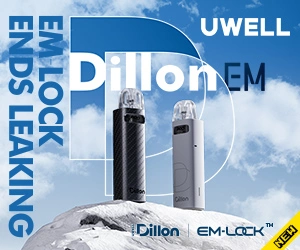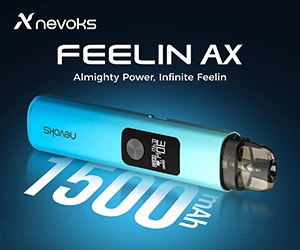The settlement agreements by Juul Labs Inc. have reached a total of over $1.7 billion for more than 5,000 lawsuits in a California court.
The 10,000 plaintiffs comprise multiple school districts, local governments, and individuals taking legal action against the e-cigarette manufacturer.
The news of the settlement was released on December 6. However, no information was given regarding the settlement total until it was reported by the Wall Street Journal on December 9.
Deceptive marketing and sales practices have been cited as the reason for these lawsuits.
Additionally, Juul has received a huge amount of criticism for its marketing strategy “blatantly” targeting the underage population. Thisled to a two-year investigation into their marketing practices, which resulted in a $440 million settlement agreement in September of this year.
The Terms of the Settlement
This latest settlement agreement falls under the ongoing mitigating steps Juul Labs have taken to appease the endless backlash that the company has received over the past few years.
Despite the settlement, Juul has remained insistent that the marketing strategies were never targeting the youth population. Furthermore, the e-cigarette manufacturer is seemingly optimistic in the face of the massive settlement.
“These settlements represent a major step toward strengthening Juul Labs’ operations and securing the company’s path forward,” a Juul spokeswoman said in a press statement.
Whether this is simply false bravado or Juul genuinely expects these settlements to end its legal woes will certainly be determined.
Juul has been the target of anti-vape advocates and the scapegoat for other manufacturers for years now. It seems unlikely that these settlements will change that.
As part of the agreement, funds will not be immediately offered. Instead, plaintiffs will need to apply for the distribution of their respective share of the settlement sum.
These sums are expected to vary wildly, with certain individuals being eligible for smaller amounts, while entities like the state of Texas will receive a share of roughly $42.8 million.
At Juul’s high point, the company was valued at $38 billion. With a standing like that, these settlement figures may look feasible to the layman. However, it is certainly hard to understand how the company could continue to survive a $1.7 billion settlement agreement with a current value of less than 27% of that (JUUL was recently valued at $450 million) and potentially no way to sell its products in the near future.
Juul’s Ongoing Legal Battles
The company’s success was undeniable only a few years ago. Within the first five years on the market, Juul became a household name through both its popularity among vape enthusiasts and infamy among the aforementioned groups who have filed suits against the company.
In an effort to reduce the sheer volume of legal actions taken against the company, Juul halted all advertising in the U.S., as well as discontinued a huge number of the flavored products that were deemed to be most problematic.
Despite these efforts, the settlement amounts appear to be continuously rising, according to various reports over the past few weeks.
In just September, news was announced by Texas Attorney General Ken Paxton that Juul had agreed to a $439 million multistate settlement from across 34 U.S. states and territories. This agreement was made to end a huge investigation into whether Juul’s marketing strategy was focused on the youth market.
This value, of course, pales in comparison to the huge sum agreed upon now.
In the midst of this all, Juul has had to lay off roughly 400 employees and cut its operating budget by up to 40%.
Left by Altria
Altria Group invested in Juul back in 2018, but the recent and disastrous events have resulted in the group making significant changes to their contract.
Altria purchased a 35% stake in the vape manufacturer for roughly $12.8 billion. In addition, the two parties entered a non-competition clause to allow Juul to reap the benefits of being backed by the big tobacco company.
However, due to Juul’s value plummeting to a relatively measly $450 million, Altria swiftly ended this clause. This has allowed Altria to look for alternative products to compete in the vape market, leaving Juul to all but fend for itself.
Although Altira has not completely pulled out of their investment, it makes sense for the big tobacco company to pour its resources into another vape company with a more stable footing in the market and far less legal scrutiny.
Food & Drug Administration Troubles
Besides the continuous battle with lawsuits, Juul has faced numerous other challenges over the past few years. One of the most damning of these came earlier this year when the Food & Drug Administration (FDA) banned all Juul products from the market on June 23, 2022.
The vaping company quickly retaliated by applying for an emergency temporary stay with a federal appeals court just two days after the FDA issued its statement.
This temporary stay allowed the company’s various products to stay on the shelves pending review from the agency.
While it was extremely unlikely that this additional review process would result in a different outcome, it has allowed the company to push sales of its existing products, giving some financial relief. This is particularly true given Juul’s infamy amongst anti-vape groups through the years of negative publicity that the company has managed to accrue.
Despite Juul’s optimism regarding this latest settlement, the FDA still holds the power to completely derail the company’s future plans, should they ban these products again.
In Summary
Juul Labs Inc has reached a settlement agreement with over 5,000 cases across the United States. The settlement value is approximately $1.7 billion and aims to appease the 10,000 plaintiffs coming after the company.
Financial issues are not the only problem the e-cigarette manufacturer is facing. Altria Group, one of its largest investors, has taken a step away from the company and a pending review from the FDA could still result in their products being altogether banned from the market.
It is fair to say many will be wondering one thing: What can Juul do to survive?









Add comment